Dal Lake : The Jewel of Kashmir
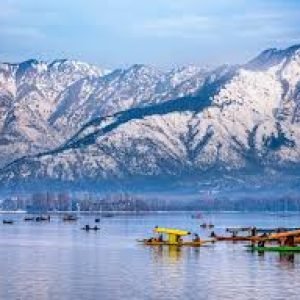
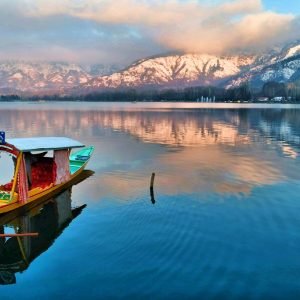
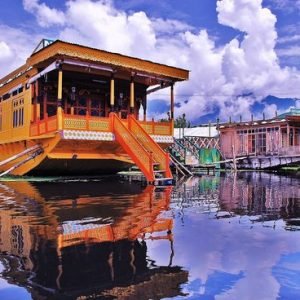
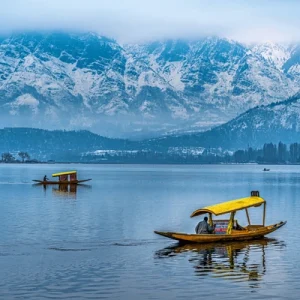
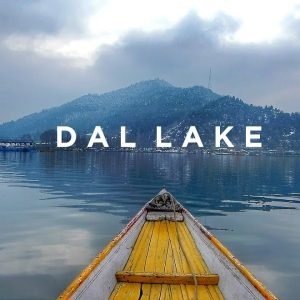
Table of Contents
Toggle1. Introduction
Dal Lake, or, as many people lovingly call it, the “Jewel of Srinagar”, is the most striking natural beauty feature in Kashmir Valley, India. Famous for its picturesque beauty, floating brilliant houseboats, and soothing rides on Shikaras, Dal Lake is essentially a destination that no one can miss when going to Kashmir. This guide covers history, geography, attractions, activities, and practical tips for visitors.
2. Historical Background
a. Ancient Importance
Centuries together, Dal Lake has remained the dominating feature in Kashmir Valley. History interlaces the cultural and economic life of Srinagar with Dal. References were drawn to the lake in ancient texts for being a source of water and also for reasons of enjoyment and commerce.
b. The Influx of Mughal Influence
The Mughal Empire, known for the fondness of gardens as vistas within the confines of nature, thus did much to give Dal Lake its present form. It was a favorite haunt of Emperor Jahangir and his queen, Empress Nur Jahan, who built several gardens and pavilions around the lake – among them being the famous Shalimar Bagh and Nishat Bagh, standing to this day as historic monuments.
c. Modern Times
Over the years, Dal Lake has turned into the hub of the tourism business in Kashmir. Houseboats, floating gardens, and Shikara rides are only a few things that have turned Dal Lake into an international tourist destination. Apart from all these, the lake faces many other environmental problems concerning pollution and siltation, which have been addressed through different conservation initiatives.
3. Geography and Features
a. Location and Size
Situated within Srinagar, the largest city in the state of Jammu and Kashmir, Dal Lake is approximately 22 square kilometers in size. The lake has basically formed enclosures of rolling green hills and mountains. Because of its geographical location and topography, the lake is a wonder both in its beauty and ecology.
b. Floating Gardens
Dal Lake has one of its marvels in the shape of floating gardens, popularly known as “Rad.” These gardens form on rafts of aquatic plants and soil. These eventually transform into a place for growing vegetables and flowers. They stand testimony to the industrious agrarian skills of the Kashmiri people.
c. Houseboats
Other highly iconic features are the houseboats in Dal Lake. Made of wood, these traditional boats offer a peculiar stay on the water with all modern comforts. The houseboats in Dal Lake are intricately designed, reflecting the rich cultural heritage of the region.
4. Attractions and Activities
a. Shikara Rides
Riding a Shikara ranks as one of the most important things to do on Dal Lake. These wooden boats, usually bright-colored with minute carvings, provide a peaceful way to see the lake’s beauty. The Shikara rides give beautiful views amidst mountains and gardens.
The stay in the houseboats at Dal Lake is quite different and enriching. Houseboats range from low budget to highly luxurious, each offering a variety of services. It includes panoramic views of the lake and landscapes surrounding it-all from within the comfort of one’s floating hotel.
b. Mughal Gardens
There’s no escaping the mesmerizing view around Dal Lake, for which the Mughal gardens of Shalimar Bagh, Nishat Bagh, and Chashme Shahi are just perfect. They exemplify Mughal horticulture skill and provide magnificent scenery to take leisurely walks and snaps.
c. The Dal Lake Market
The market takes place in the Shikaras, which are operated on the lake. It is a place filled with energy and life. One can browse up to buying some great Kashmiri handicrafts, souvenirs, and fresh local produce at this beautiful floating market.
d. Watching of Wildlife and Birds
Many species of birds and aquatic life are found in Dal Lake. A bird watcher can observe different species that include ducks, swans, and herons. The lake ecosystem supports various types of flora and fauna adding to its beauty.
5. Practical Tips for Visitors
a. Best Time to Visit
The best time to visit Dal Lake is during the spring-summer months, which falls from March to May to June to August. The weather remains pleasing during this time, and the gardens and landscapes in the vicinity get covered with full blooms. During winter, falling in November to February, it gets very cold with temperatures mostly below freezing.
b. How to Reach
Srinagar has good connectivity by air, road, and rail. There are flights available from most major Indian cities to Sheikh ul-Alam International Airport or Srinagar Airport, as it is generally known. The city is well-connected by road from Jammu and other parts of northern India.
c. Places to Stay
Other than the houseboats, there are a lot of options to stay in Srinagar, from luxury hotels to guesthouses and lodges. It is highly recommended to book these in advance, especially during the peak tourist season.
d. Food
Kashmiri food is sought after for the richness of flavors and for the variety it offers. While in Srinagar, surely taste the Rogan Josh, Yakhni, and the traditional Wazwan. Most of the houseboats and restaurants here serve local Kashmiri food.
e. Safety and Health
Dal Lake is an extremely safe destination for tourists; however, standard precautions for travel are recommended. Pay good attention to food and water hygiene, and make sure you have adequate travel insurance coverage. It is also advisable to check on any travel advisories or updates before departure.
f. Environmental Conservation
Dal Lake basically has a lot of environmental problems relating to pollution and siltation. Be a responsible traveler by supporting eco-friendly practices and conservation whenever an opportunity arises. Avoid littering and follow whatever local guidelines are available on how to help keep the beauty of the lake alive.
6. Cultural and Social Aspects
Lying at the foot of the Himalayas, Kashmir has inherited one of the most rich cultural traditions among the local people, influenced by the various civilizations that flourished here: Mughals, Persians, and Central Asians. The traditional Kashmiri lifestyle is deeply interlinked with the history and geography of the region, including handicrafts and festivals.
a. Festivals
The whole year-round, Dal Lake and Srinagar celebrate festivals, from traditional Kashmiri festivals like Eid, Diwali to the Tulip Festival, which displays the vivacious cultural life of this area.
b. Arts and Crafts
Kashmir is famous for its unmatched arts and crafts; that is, the Pashmina shawls, Kashmiri carpets, and traditional embroidery. Visitors can visit local bazaars and crafts centers where they can buy authentic Kashmiri souvenirs.
7. Conclusion
Besides being a beautiful lake, Dal Lake is a cultural and historical landmark, affording views into the heritage and natural beauty of Kashmir. From its placid waters with floating gardens to colorful markets and luxurious houseboats, Dal Lake has something in store for every kind of traveler. Grasping the history, exploring the attractions, respecting the environment-all these ways, guests can appreciate in full the charm and significance of this iconic destination.
How to book a trip to Dal Lake, India with Charzan Holidays?
For a seamless and exceptional booking experience, contact Charzan Holidays at reservations@charzan.in or call us at +919622224473
Frequently Asked Questions
1. What is Dal Lake? | |
| Dal Lake is a famous freshwater lake located in the Srinagar district of Jammu and Kashmir, India. It is known for its stunning beauty and traditional houseboats. | |
2. Where is Dal Lake situated? | |
| Dal Lake is situated in the heart of Srinagar, surrounded by the majestic Himalayas and lush gardens. | |
3. What activities can I do at Dal Lake? | |
| Visitors can enjoy boating, shikara rides, houseboat stays, fishing, and exploring local markets and gardens. | |
4. What is the best time to visit Dal Lake? | |
| The best time to visit is from April to October when the weather is pleasant and the lake is vibrant with blooming flowers and greenery. | |
5. Are there accommodations available on Dal Lake? | |
| Yes, there are numerous houseboats and hotels available for accommodation directly on the lake, providing a unique experience. | |
6. Is fishing allowed in Dal Lake? | |
| Fishing is permitted, but it’s advisable to check local regulations and guidelines for sustainable practices. | |
7. What wildlife can be found around Dal Lake? | |
| Dal Lake is home to various bird species, especially migratory birds, making it a popular spot for birdwatching. | |
8. How can I reach Dal Lake from Srinagar Airport? | |
| Dal Lake is approximately 12 kilometers from Srinagar Airport, and local transport options, including taxis and shuttles, are readily available. | |
9. Is it safe to visit Dal Lake? | |
| Yes, Dal Lake is generally safe for tourists. However, it’s advisable to stay informed about local conditions and follow safety guidelines. | |
10. What is the size of Dal Lake? | |
| Dal Lake covers an area of approximately 22 square kilometers, although its size can vary with seasonal changes. | |
11. Are there any environmental concerns to consider while visiting? | |
| Yes, visitors should practice eco-friendly tourism by not littering, respecting local wildlife, and adhering to guidelines to preserve the lake’s ecosystem. | |
12. Can I go boating on Dal Lake? | |
| Yes, boating is a popular activity on Dal Lake, and visitors can hire shikaras (traditional wooden boats) for scenic rides. | |
13. What are the key attractions near Dal Lake? | |
| Key attractions include Nishat Bagh, Shalimar Bagh, Shankaracharya Temple, and various local markets. | |
14. Is there a market or shopping area near Dal Lake? | |
| Yes, there are several markets and local shops around Dal Lake where visitors can purchase handicrafts, saffron, and pashmina shawls. | |
15. Are there guided tours available for Dal Lake? | |
| Yes, many local tour operators offer guided tours that include boating, sightseeing, and cultural experiences around Dal Lake. |


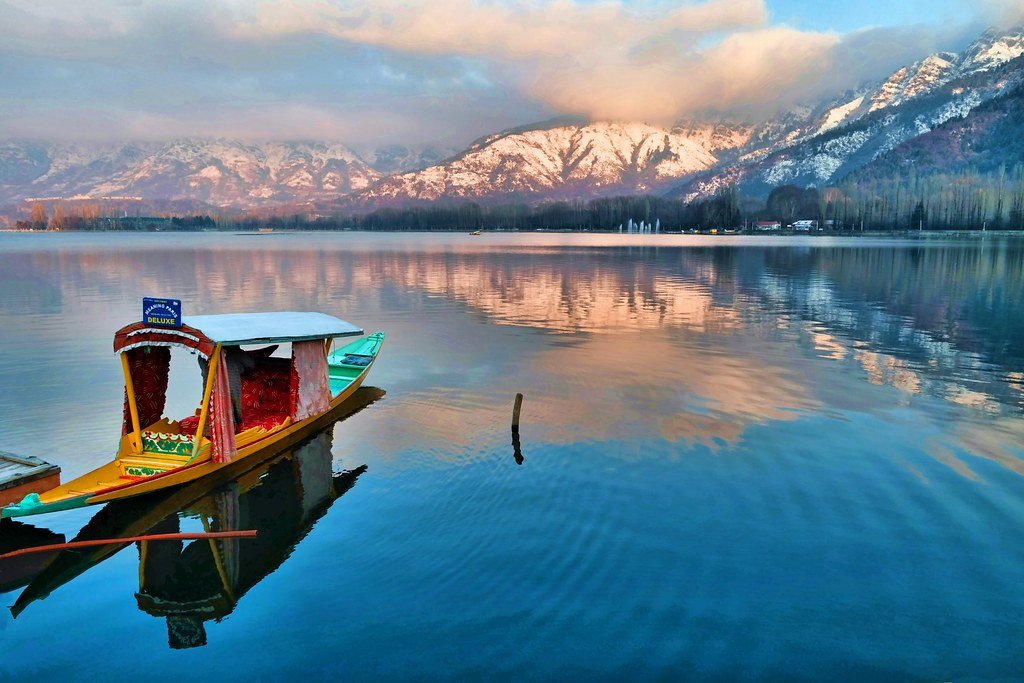
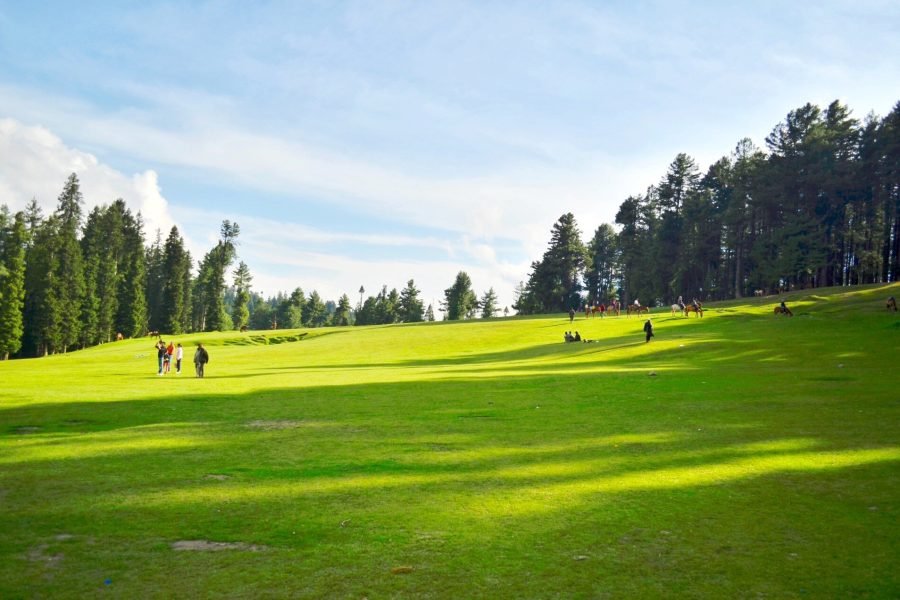
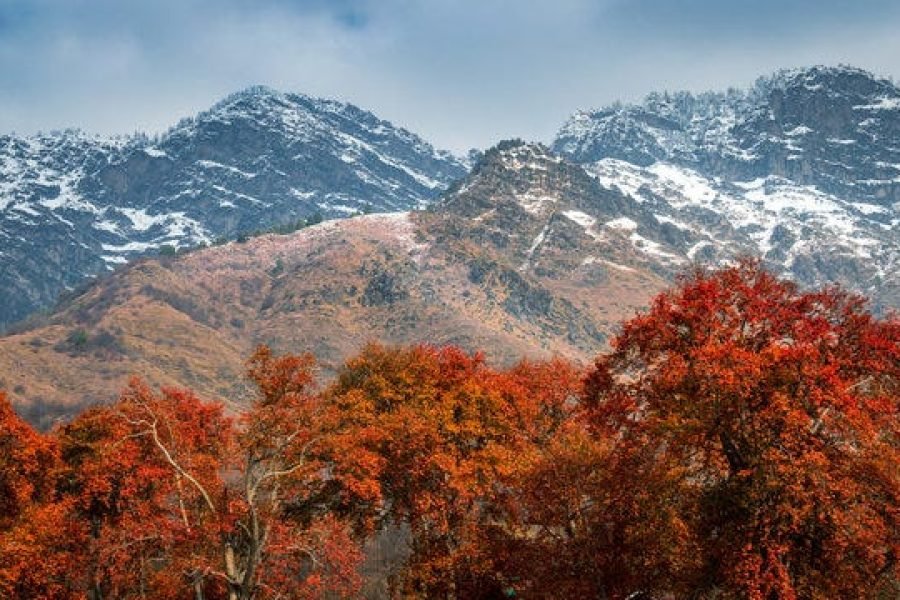
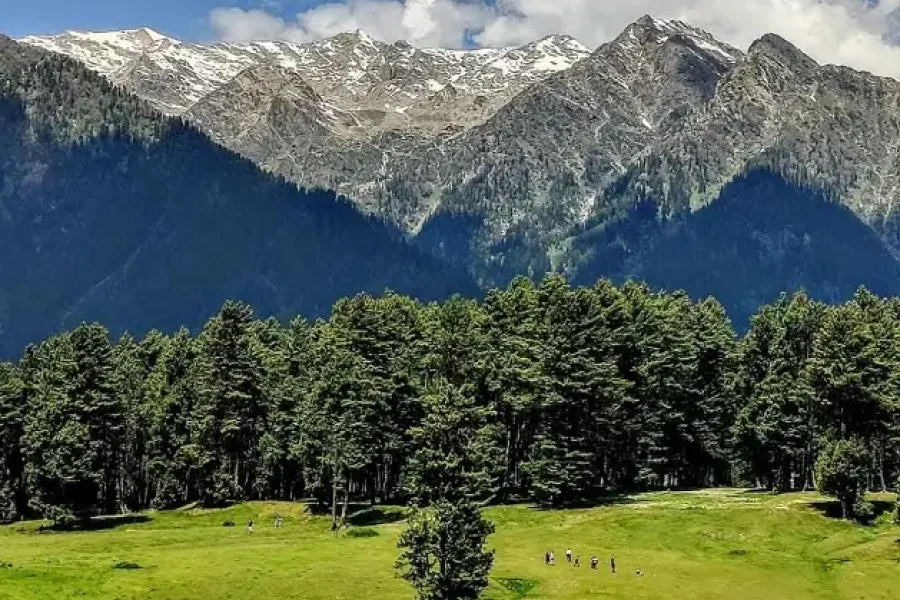
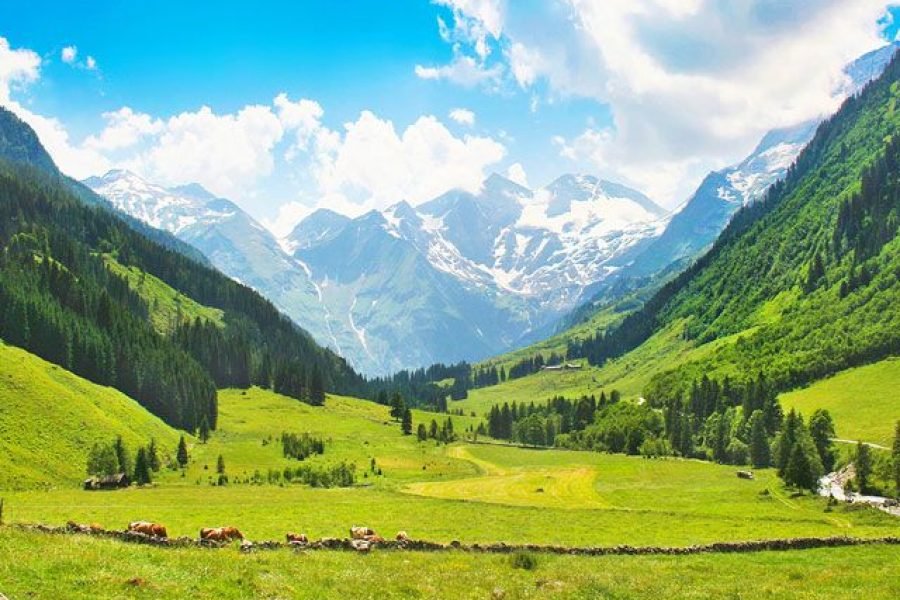
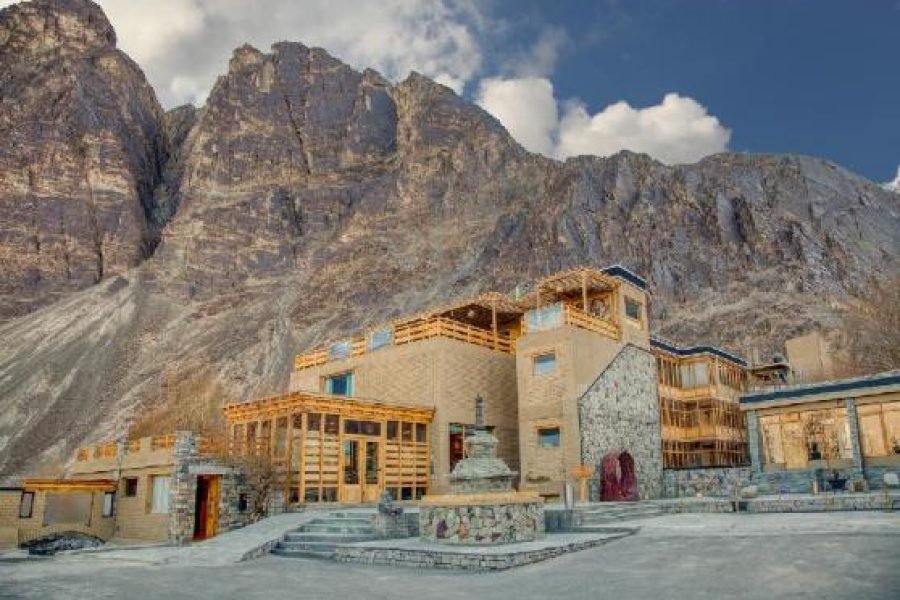
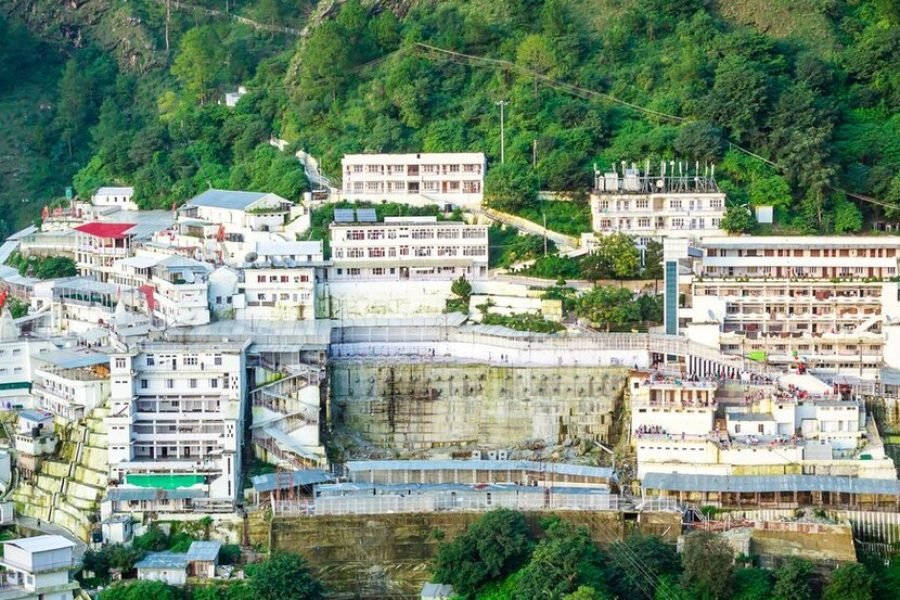
0 Comment